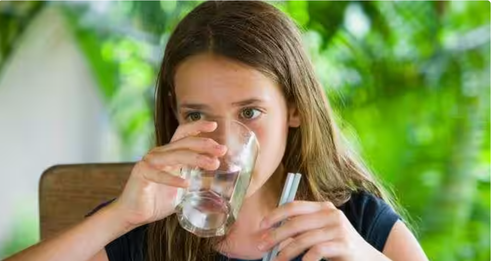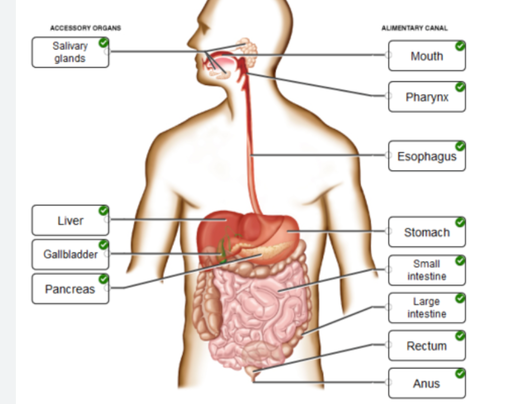🌸
🌸
Don't Drink Water During Meals
To Avoid Indigestion
🌸
Studies show that it is advisable to have a glass or two of water
30 minutes before your meal or 30 minutes after.
🌸
Don't Drink Water During Meals
To Avoid Indigestion
🌸
Studies show that it is advisable to have a glass or two of water
30 minutes before your meal or 30 minutes after.
🌸
🌸
🌸
Do not drink water while eating as it dilutes the gastric juices and slows down the process of digestion in the stomach and the intestine.
While it is good knowing what to eat and how much to eat, it is always better to follow healthy food habits. It is a well-known fact that the body receives its much-needed dose of minerals from water. But it is also important to know when to drink water.
Avoid drinking water while eating as it dilutes the gastric juices and slows down the digestion process in the stomach and the intestine.
This causes the undigested food to leak into the digestive system causing acid reflux and heart burn.The digestive enzymes become inactive hampering the digestion leading to the accumulation of toxic waste in the body.
Another consequence of sipping water between meals is
that it reduces the amount of saliva that is crucial for breaking down food.
Drinking water with your meals can also make you put on weight.
This is because when the body is unable to digest foods well,
it tends to convert the glucose from foods into fat which gets stored in the body.
For better metabolism, it is always advisable to drink
water 30 minutes before or after your meal.
https://www.thehealthsite.com
Do not drink water while eating as it dilutes the gastric juices and slows down the process of digestion in the stomach and the intestine.
While it is good knowing what to eat and how much to eat, it is always better to follow healthy food habits. It is a well-known fact that the body receives its much-needed dose of minerals from water. But it is also important to know when to drink water.
Avoid drinking water while eating as it dilutes the gastric juices and slows down the digestion process in the stomach and the intestine.
This causes the undigested food to leak into the digestive system causing acid reflux and heart burn.The digestive enzymes become inactive hampering the digestion leading to the accumulation of toxic waste in the body.
Another consequence of sipping water between meals is
that it reduces the amount of saliva that is crucial for breaking down food.
Drinking water with your meals can also make you put on weight.
This is because when the body is unable to digest foods well,
it tends to convert the glucose from foods into fat which gets stored in the body.
For better metabolism, it is always advisable to drink
water 30 minutes before or after your meal.
https://www.thehealthsite.com
🌸
🌸
Drinking Liquids with Meals ...
🌸
Drinking Liquids with Meals ...
🌸
🌸
To understand why water is disturbing digestion, it’s useful to first understand the normal digestive process.
Digestion starts in your mouth as soon as you start to chew your food.
Chewing signals your salivary glands to start producing saliva, which contains enzymes that help you break down food.
Once in your stomach, food gets mixed with acidic gastric juice, which further breaks it down and produces a thick liquid known as chyme.
The stomach muscles churn and mix the food with digestive juices that have acids and enzymes. These juices help break up food into much smaller pieces.
By the time food is ready to leave the stomach, it has been turned into a thick liquid called chyme.
In your small intestine, chyme gets mixed with digestive enzymes from your pancreas and bile acid from your liver. These further break down the chyme, preparing each nutrient for absorption into your bloodstream.
Most nutrients are absorbed as the chyme travels through your small intestine. Only a small portion remains to be absorbed once it reaches your colon.
Once in your bloodstream, nutrients travel to different areas of your body. Digestion ends when the leftover materials are excreted.
Depending on what you eat, this whole digestive process can take anywhere from 24 to 72 hours.
https://kidshealth.org/en/parents/digestive.html#
Digestion starts in your mouth as soon as you start to chew your food.
Chewing signals your salivary glands to start producing saliva, which contains enzymes that help you break down food.
Once in your stomach, food gets mixed with acidic gastric juice, which further breaks it down and produces a thick liquid known as chyme.
The stomach muscles churn and mix the food with digestive juices that have acids and enzymes. These juices help break up food into much smaller pieces.
By the time food is ready to leave the stomach, it has been turned into a thick liquid called chyme.
In your small intestine, chyme gets mixed with digestive enzymes from your pancreas and bile acid from your liver. These further break down the chyme, preparing each nutrient for absorption into your bloodstream.
Most nutrients are absorbed as the chyme travels through your small intestine. Only a small portion remains to be absorbed once it reaches your colon.
Once in your bloodstream, nutrients travel to different areas of your body. Digestion ends when the leftover materials are excreted.
Depending on what you eat, this whole digestive process can take anywhere from 24 to 72 hours.
https://kidshealth.org/en/parents/digestive.html#
🌸
🌸




